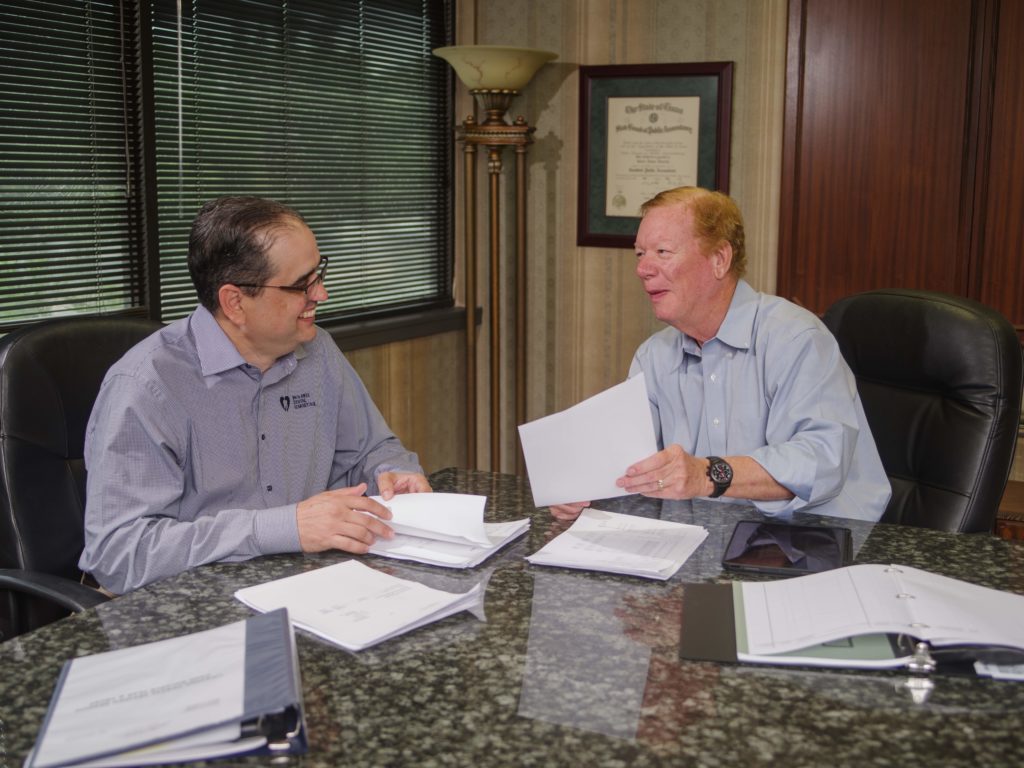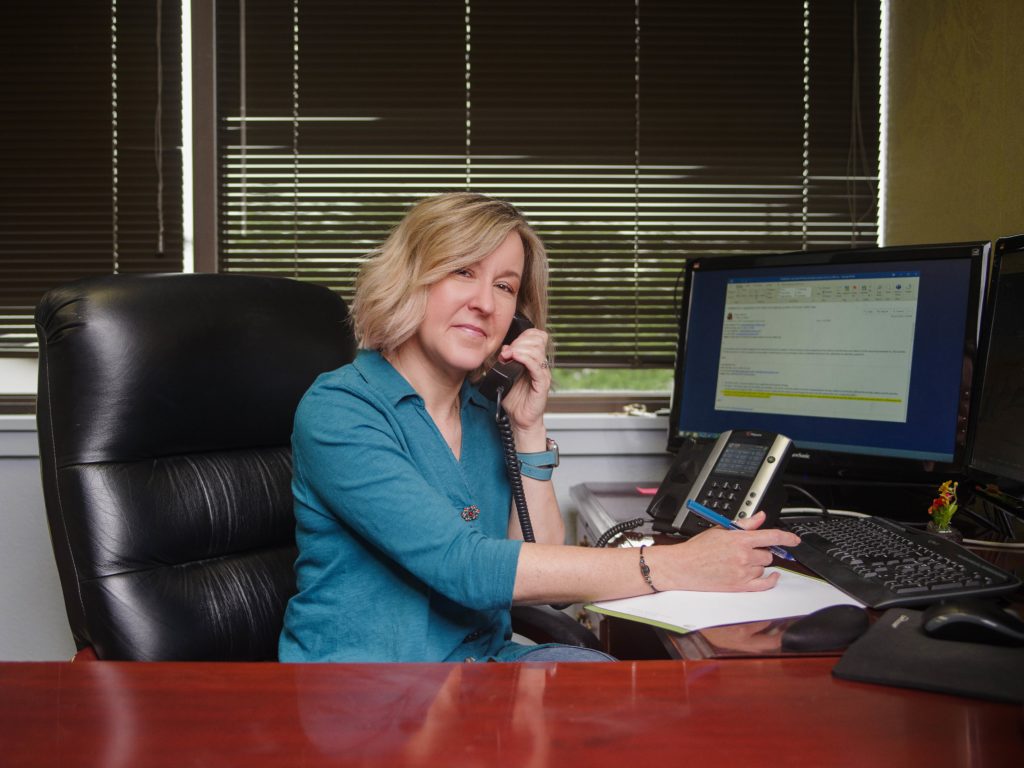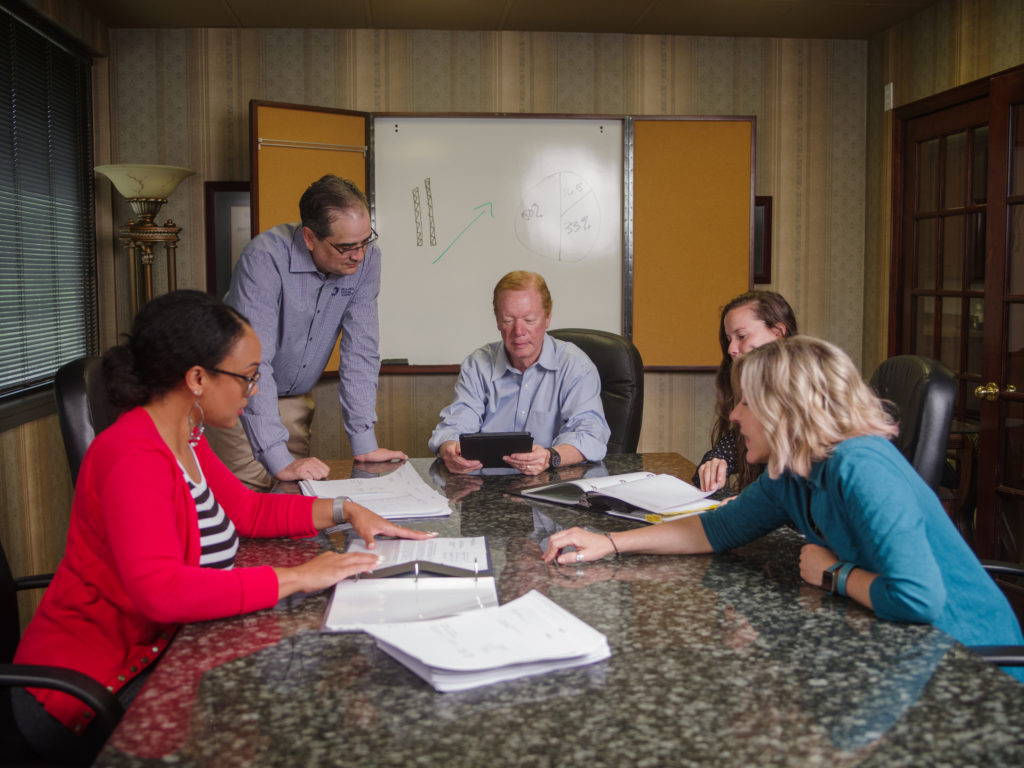Focus on
Improving My Dental Practice
You have moved beyond the start-up phase and proudly own an established dental practice. New patients are rolling in and cash flow looks good. But you begin to wonder…how can I improve my dental practice? Am I paying too much in taxes? Where should I invest my hard earned money? How can I continue to grow?
Step 1
How Can I Improve My Dental Practice?
Once you have an established dental practice, the next step is to ask yourself how you can continuously improve your business so it can be the best it can be. From profit planning and operational efficiencies to team building and patient communication strategies, it is your responsibility to stay ahead of your competitors.
In addition to the myriad services we provide, we regularly make referrals to other providers who can help you improve your practice. These vetted resources provide consulting services to help established dental practice owners fine-tune their businesses to be the best they can be.
Step 2
How Can I Pay Less In Taxes?
Am I paying too much in taxes? What tax deductions do I qualify for? These are questions we hear all the time. The truth is you probably could be paying less in taxes but knowing how to do so legally gets tricky. From the equipment you bought for your practice, to work functions you attend, to investment gains, there are many reasons you could qualify for tax breaks.
At Edwards & Associates PC, we can potentially help you keep more of what you earn. It’s as simple as that. Our team of tax experts is highly skilled at identifying tax break opportunities while ensuring 100% compliance with IRS tax laws.
Our Monthly Core Services set us apart from other firms. We create a flat-rate plan customized for your specific practice and its needs. You will receive all of the typical tax & accounting services that we offer, along with customizable options specific to your business and personal needs.
Step 3
Where Should I Invest My Money?
As the owner of an established dental practice, you have certainly generated some profits by now. What you do with that money will determine your future financial success and retirement options. How you invest your newly earned profits will have a major impact on your future, so it is important to always keep your long-term goals in mind. Knowing how your money can work for you is critical to sustaining success both professionally and personally.
As a dental-specific CPA firm, we can help with just that! Our personal, comprehensive, one-on-one financial planning sessions are explicitly tailored to each client and aim to set you up to meet your goals.
Step 4
How Can I Expand or Enhance My Dental Practice?
Expanding your dental practice could mean opening a second location, but it doesn’t have to. By adding specialized services or procedures—such as Invisalign, implants, or other advanced treatments—you can attract a broader range of patients and increase revenue without significantly altering your current operations. Another option is to partner with a specialist to handle these services in-house, eliminating the need to refer patients elsewhere. These strategies not only enhance your practice’s offerings but also strengthen patient loyalty and position your office as a one-stop solution for comprehensive dental care.
We provide Consulting around ways you can expand your services to ensure you make the right financial decisions, at the right time.
Step 5
Do I Need a Dental CPA?
If you are a dentist, with taxable income, investments, assets, and plan to eventually retire, then the simple answer is yes. A dental CPA firm not only helps you make the best decisions for your dental practice, but also helps you keep more of what you earn.
We are a CPA firm with more than 30 years of experience, contact us to learn more!
Are you ready to meet us?
We Are Your Financial Experts.
Related CPA Services
Monthly Core Services
Monthly Core Services In this stress-free accounting offering, we handle bookkeeping, taxes, financial reporting, and…
Financial Planning
Strategic Financial Planning for Dentists Secure your financial future with expert guidance tailored to dental…
Transition Services
Transition Services for Dentists Whether you’re launching a new practice, expanding, or preparing to sell,…
Dental Practice Consulting
Dental Practice Consulting Running a dental practice comes with unique challenges. Since 1987, our team of…
Have Questions?
Contact us at info@eandassociates.com or call us at (972) 267 9191 to schedule a consultation!
When Should I Start Thinking About Implementing a 401k Plan?
As soon as possible! The founder of our firm, Mr. Robert Edwards gets these questions all the time and he always answers them the same way: “I’m always encouraging our clients to save for retirement even when they starting their dental practice. Remember, if you do not put money away, you are more likely to spend it! You only stand to benefit by funding a retirement plan in the early years of your practice because you don’t have any other eligible employees.”
Are Dental Services Subject to Sales Tax?
It is important to remember that dental services and appliances are exempt from sale and use tax in most cases. However, the sales of non-prescription toothpaste and toothbrushes can be subject to sales and use tax.
If you decide to sell non-prescription items to your patients, the first step is to apply for a Sales and Use Tax Permit. You can apply for a permit online using Webfile. The Sales and Use Tax permit also allows you to be exempt from paying sales tax on any items that you purchase for resale.
Next, you need to set up your dental software to track taxable transactions to allow for accurate record keeping. Contact your software help desk for helping in creating the necessary monthly taxable activity reports.
If you are required to collect sales tax on nonexempt transactions such as toothbrushes and toothpaste, your reporting and remittance schedule depends upon how much sales tax you are collecting within a monthly, quarterly, or yearly time frame. You are required to file a Texas Sales and Use Tax Return (Form 01-117) and submit the collected tax based on the collection levels below:
- You must file Monthly if you collect $500 or more tax in a month.
- You must file Quarterly if you collect <$500 per month or <$1500 per quarter.
- If you collect less than $1,000 in tax per year, then you need only file one per year. However, if you are collecting close to this level of tax then a quarterly filing pattern is a safer option.
The Texas Comptroller allows multiple methods for reporting and payment including paper filing and Webfile.
Are Dental Practice Management Consultants Worth the Investment?
If you own a dental practice, you know that it’s a job that requires you to juggle many responsibilities. The reality is that not everybody is cut out to juggle everything required to run a dental practice, while also being a good dentist. And even if you are one of the few dentists that can “do it all”, how do you give it the time it deserves while also seeing patients and perfecting your craft?
Unless you’re prepared to hire an in-house team to run your business, you’ll have to look elsewhere for guidance and support. A great place to start is with a dental practice management consultant. A dental consultant helps dentists improve their practice by providing advice, training, and expertise.
This includes, but is not limited to:
- Coaching Your Team
- Building Patient Relationships
- Identifying Behavioral Styles
- Team Building
- Partnerships that Thrive
- Implementing Incentive Programs
- Equipment purchases
- Finances and billing
- Maintaining an Effective Hygiene Program
- Scheduling to Goal
Dental Practice Consultants are most useful when you are starting up a new practice, looking to expand your dental empire, or going through other transitional periods such as adopting new management software, onboarding new staff members, or selling your dental practice. Dental practice consultants can also be used to help you improve your practice efficiency and evaluate weak points. At Robert Edwards & Associates PC, we are lucky to have renowned dental practice consultant Dr. Sharon Tiger, who has decades of experience in helping dental practices make the best decisions to ensure success.



